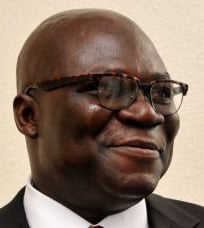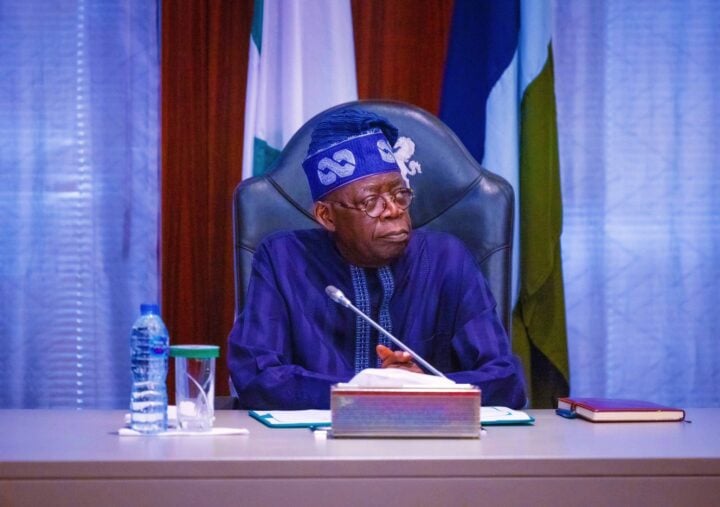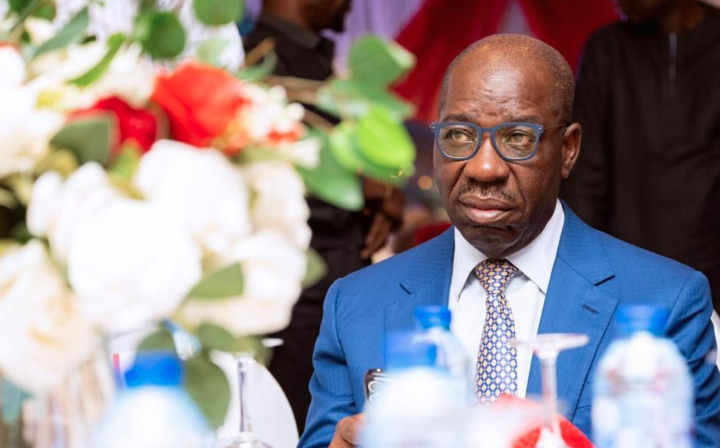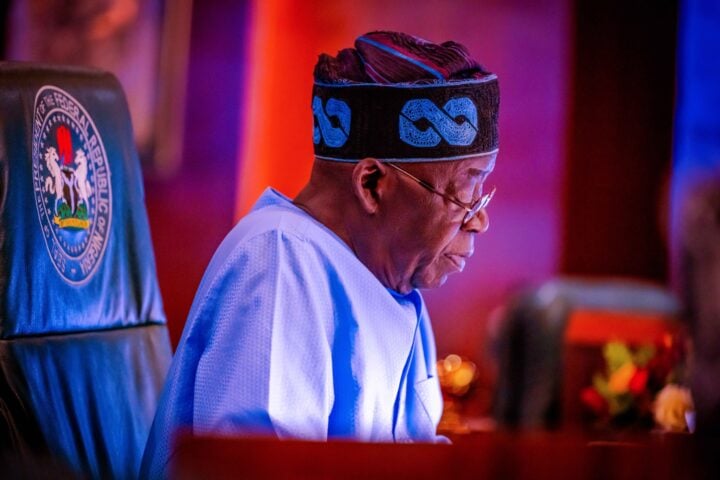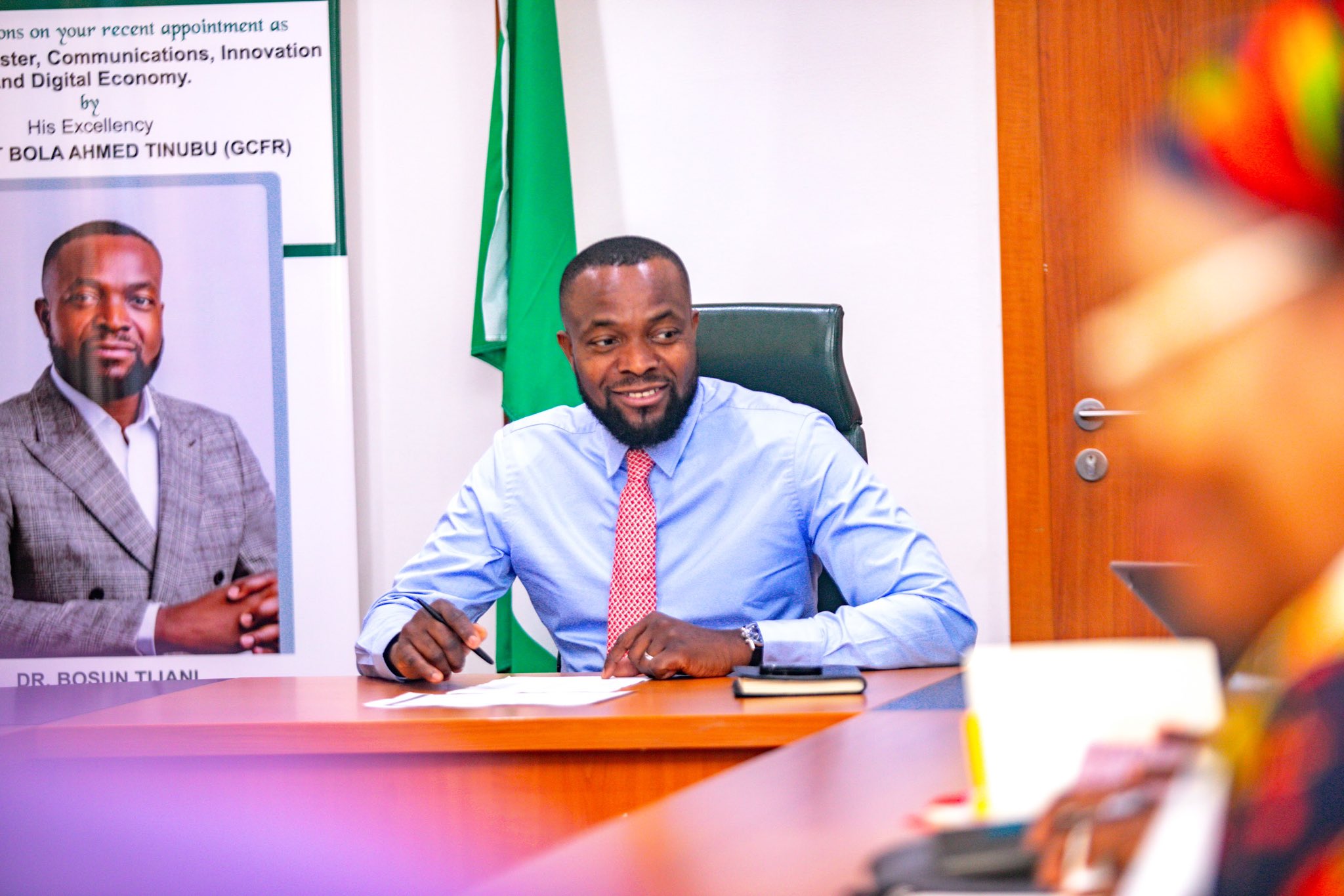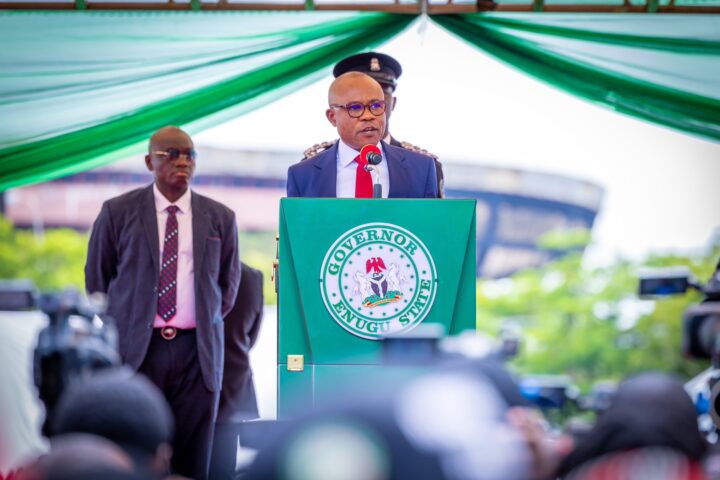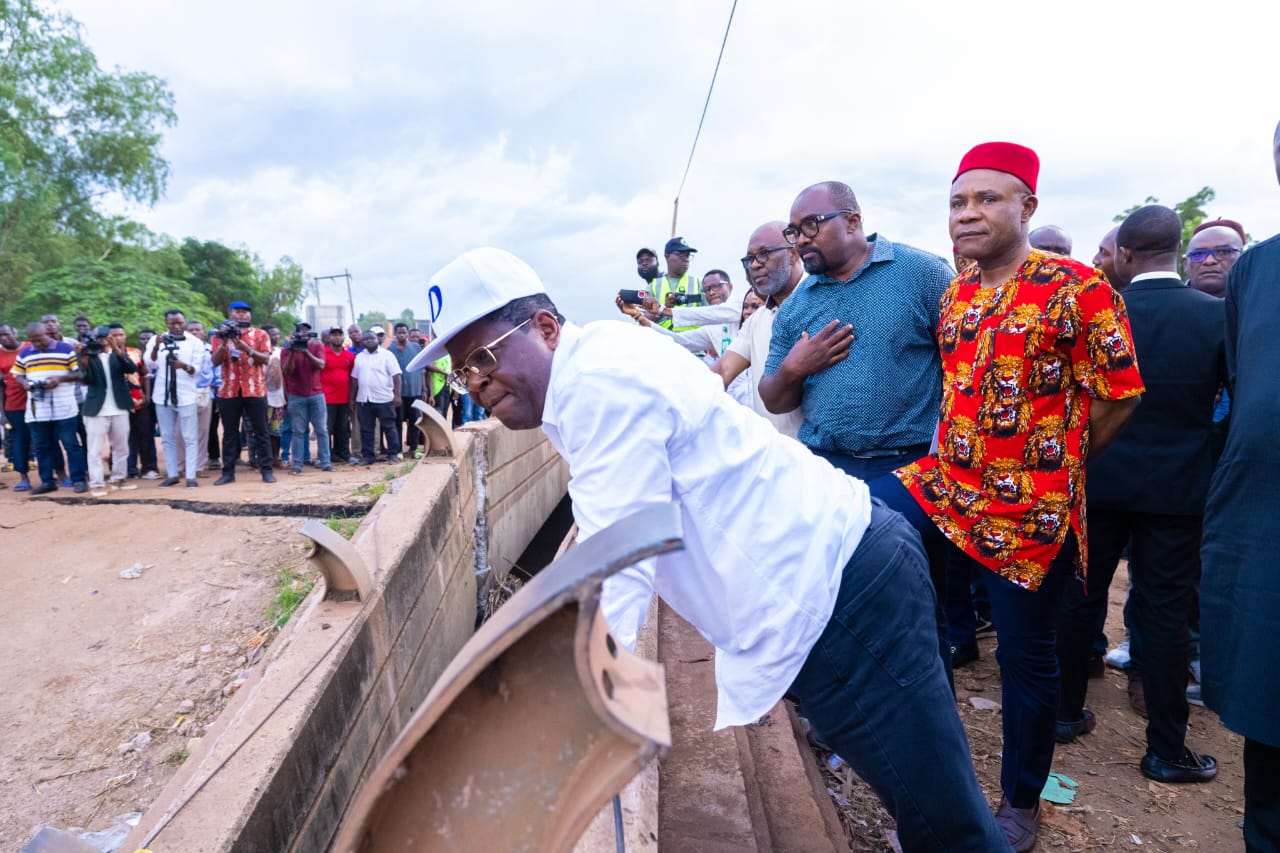When in 1992, James Carville, Bill Clinton’s campaign strategist uttered the quip on television: “It’s the economy, stupid”, little could he have realised that he had pronounced a phrase that would reverberate beyond the United States and become a benchmark in other presidential campaign processes. Carville spoke in the context of the 1992 US presidential campaign by the Democrats against incumbent President George H. W. Bush — that is Bush, the father. As a strategist for Bill Clinton, he merely played up the recession in the United States. He talked about change vs more of the same, the economy and healthcare.
The phrase has caught on since then, not just in the United States but across the world and applied instructively to anything that is considered of high priority. Carville, now 78, in at least one interview is now wondering why President Biden’s approval ratings remain so low despite the fact that unemployment in the United States is at an historic low and inflation is on a downward trend. The economy seems to be doing well under Biden but it has not increased ratings. The paradox speaks to a certain disconnect, reasons for which may have to be sought elsewhere. What cannot be controverted however is that economic performance is directly linked to the people’s well-being, and the spread of prosperity. In the United States, many presidents were punished for failing to get the economic framework right: Jimmy Carter, George W. H. Bush. The role of the economy in elections, and government’s performance would always be a major issue, and in that regard, James Carville may be rest assured that he has added a phrase into leadership and governance that may well ring true for all times. The state of the economy determines the people’s level of happiness, the opportunities that are available to them and their capacity for self-belief and actualisation. Even in the United States, there is currently a raging debate about Bidenomics between the Republicans and the Democrats, coloured as expected by partisan interests. The times keep changing but concerns about the economy remain crucial.
And that leads us to the relevant question here: How is the Nigerian economy faring under Tinubu, five months after the assumption of office? Are we better today than we were under President Muhammadu Buhari, the man who has been described as the perfect exemplification of the words “slow” and “clueless”. Nigerians oftentimes do not know what is good for them. They voted for the same man twice and kept him in office for eight years and there are millions out there who believed and may still believe that he was the best choice for Nigeria. I am worried, and for this reason, by the year 2035, Nigeria’s population would have increased to about 400 million. This may translate into an exponential increase in the population of stupid people who can be led by the nose by deceit and propaganda. It is the country that will suffer. In the 2023 general elections, then came along a certain Bola Ahmed Tinubu on the platform of the ruling party, the All Progressives Congress (APC) who fought a valiant battle to win his party’s ticket, backed by the slogan that having made other persons king of Nigeria (notably Buhari), it was his turn to sit on the throne. He did not quite have the express support of the incumbent president but in the end, he not only got the ticket, he won the election with more than eight million votes — one of the lowest margins since Nigeria’s return to civilian rule in 1999. The president’s campaigners sold the narrative that he turned Lagos around, increased Internally Generated Revenue (IGR), built infrastructure, and mastered political engineering. Reminded again and again that Lagos is not Nigeria, Tinubu’s strategists told us not to worry. They talked about the possibility of hope being restored. So, today, we ask: How market? How is it going? Five months down the line. Our primary focus is the economy.
Not enough attention is being paid to this very important subject, at the moment, by the way, in part because there has been so much engrossment with politics and other matters. The pursuit of the controversy about President Tinubu’s credentials by the People’s Democratic Party (PDP) and its candidate Atiku Abubakar in a foreign jurisdiction has been the subject of attention in addition to concerns in the southern part of the country about the controversial death of Ilerioluwa Aloba, popularly known as Mohbad, in itself a very bad and needless distraction that should never have occurred. While distractions in politics and society may serve the sitting government well, nothing is taken away from the fact that the economy is tanking and the people are suffering. On top of it all, I have raised the alarm elsewhere that the president appears to be absent. The presidency is not a job where the holder of the office can appear and disappear at will. He must be present, always. I have not seen Mr. President in any public capacity in one week, and I think Nigerians have a duty to ask after his whereabouts. If the American president disappears for three days from the news in America, even the stock exchange will be affected. I once wrote a piece referring to a book by Matthew Algeo titled ‘The President is a Sick Man’. The subject of the book was Grover Cleveland, the 22nd and 24th American president who disappeared briefly to have a secret surgery at sea in July 1893 on a friend’s yacht. A journalist, E. J. Edwards exposed the president. Cleveland’s political career was built on the mantra: “Tell the truth”, but he failed at that moment to tell the truth, act honestly, about his own circumstances thus creating a conflict between politics, medicine and journalism. E.J. Edwards, the journalist, was disgraced and dismissed as a liar but he was vindicated more than 20 years later when the truth came out. Cleveland disappeared for only five days to treat a cancerous tumour.
Advertisement
Matthew Algeo’s book tells the full story. In contemporary times, if the American president were to disappear from public view for just two days, the American stock market would have issues. It is a measure of the kind of system that we run around here that Nigerians would not see their president for days and they would be comfortably obsessed with tittle-tattle. I have not seen my president since he returned from Paris and he made an appearance on October 1. No federal executive council meeting. Why? Three additional ministers have been cleared by the senate. They are yet to be sworn in. Why? The Niger Delta Development Commission (NNDC) board has been cleared by the senate. Yet to be sworn in. Why? So, what’s next? Where is the president? This columnist hopes fervently that he will show up tomorrow at the federal executive council meeting, and not be represented again by his deputy who has been more visible in action in recent times than his principal. This was how President Buhari once disappeared for more than seven months and we all accepted that anomaly, and simply moved on. It must not become a tradition in this country that a president can just disappear and show up at will. The Presidency of Nigeria is a full-time job, not a part-time assignment.
What suffers with a president playing possum is the economy and the people’s welfare. It will be recalled that on May 29, 2023, the day the president assumed office, one of the major highlights of his speech was that the fuel subsidy was gone. He promised to reform the economy and make Nigeria a major investment destination. He also promised to fix Nigeria’s foreign exchange crisis, and in that wise, the country’s dual exchange rate was abolished, the Naira was devalued, the then central bank governor, Godwin Emefiele, was arrested and detained. All of those initial steps taken by the president have more or less failed, leaving Nigerians in greater difficulty. Five months later, Nigerians are still searching for the hope that they were promised. They are forlorn. The removal of fuel subsidy has moved the pump price of petrol (PMS) from N186 in May to over N500 and as high as N617 in July. What is quoted is the fact that there is no provision in the 2023 appropriation act for subsidy beyond June 1, 2023, and the fact that the petroleum industry act (PIA) states that petroleum prices must be determined by market forces. Our neo-liberal economists praised these forces to high heavens.
By August 2023, the landing cost of PMS had risen to about N720 per litre. The same government saying that fuel subsidy had gone has since been forced to provide subsidy. Please what happened to the market forces? The situation is likely to get worse with the on-going Israel-Hamas war, which has resulted in about a 4% jump in the spot price of Brent Crude and WTI. Nigeria imports finished products because all of its refineries are not working. Marketers have had to halt imports, resulting in queues at fuel stations in many parts of the country and complaints by oil marketers about NNPCL monopoly. Could it be that the president did not understand the situation before he said subsidy was gone? Shouldn’t the president come clean and announce subsidy is back and his administration has had to reverse itself?
Advertisement
We also need to know what is going on with the harmonisation of the foreign exchange regime. Since the introduction of that policy, the Naira has been devalued by more than 40% such that the biggest challenge that Nigeria faces today is how to save the Naira. If the Tinubu administration hoped to close the gap between the official and parallel windows, it has achieved the exact opposite and created more opportunities for arbitrage. The Naira today is almost N1, 000 to the dollar, and over N1,250 to the pound sterling. It is rated among the lowest currencies in Africa. Everyone is groaning, including manufacturers and employers of labour. Godwin Emefiele, former CBN governor, was suspended and detained. An acting governor, Folashodun Shonubi, was appointed and later replaced by Yemi Cardoso as substantive governor, yet Nigeria’s monetary policy remains chaotic. Virtually every post-Emefiele policy move under Shonubi’s interregnum failed. The standard excuse was that Nigeria was facing a supply of forex problem until we all found ourselves in a situation where nobody could function again and the entire economy was thrown into a dysfunctional mode. The CBN even said it was entering into an alliance with oil majors and fintechs to assist with forex supply. It didn’t work. NNPCL, Nigeria’s oil and gas behemoth also waded in, with a crude oil for cash swap with AFREXIM Bank. No result! Why should anyone expect any result in an unproductive economy? Countries earn forex by being productive. Nigeria is one vast consumption destination, a dumping ground.
It is therefore the reason no one should be surprised that in the recent capital importation report by the National Bureau of Statistics (NBS), it was disclosed that the country’s total capital importation dropped by 9.04% in the second quarter (Q2) of 2023, that is within six months, amounting to a drop of 32.90% year on year. In the report, 28 states of the federation did not attract any foreign investment in six months, an alarming indication of the economic crisis at Nigeria’s sub-national levels. These states exist just to collect their shares from the monthly federation allocation account. They lack the capacity to produce despite all that talk about how Nigeria is richly endowed and every state is flowing with resources. Petrol dollar which accounts for 40% of GDP, 98% of foreign exchange earnings, and 76% of country revenue has made everyone lazy and has turned crude oil into Nigeria’s biggest curse. The eight states that have received foreign investments according to the report are of varying value: Lagos – 69%, Federal Capital Territory – 28%, but a state like Ondo got just a meagre $200,000. What is the matter with Ondo state for example? Why would any foreigner invest there? This is a state that is bogged down by sheer irresponsibility, mindless politicking, absenteeism, physical and psychological, and a governance mindset that belongs more to the paleolithic age. Those who claim to speak for the confusion in that state are so dumb and so poorly educated they merely misrepresent their own unimaginative narrative. Abdullahi Ganduje, the chairman of the APC and former governor of Kano state, whose own state is as much a victim of bad politics, now says he wants to help resolve the infantile governor vs deputy governor politics in Ondo state. How? We may again and again focus on the federal government but what goes on at the sub-national level is enough to generate outrage, given the fact that it is the people who suffer from the reduction of governance to a circus.
Senator (Mrs) Remi Tinubu, the First Lady of Nigeria, has been quoted as saying that nobody should hold her husband responsible for Nigeria’s problems because he is not a magician, he is just a man who inherited the failures of past administrations. I have had cause to praise her for her grace and elegance and the dignified manner in which she has supported her husband but she must restrain herself from getting directly involved in core governance and policy issues. Otherwise, each time she jumps into the arena, she would have the likes of Garba Shehu giving her a back-hand slap to tell her to get back quickly to the famous other room as Shehu did rather impudently, recently. Nigerians voted for her husband, not her. She must learn to strike a balance. Besides, all the Tinubu sons and daughters trying to treat Nigeria and the Presidency like a family heirloom must back off, and stop pushing themselves in our faces. We have the Vice President Kashim Shettima who is constitutionally empowered to act on the president’s behalf but even he must be sure of what he says. Going to Lokoja, Kogi state, the other day, to make empty promises with Ajaokuta Steel Company – to create 500,000 jobs – is one of the most curious empty promises in recent times, based on complete lack of knowledge at the highest levels. VP, you can’t create 500,000 jobs by merely talking about it at a political rally.
President Tinubu must show up and take charge, not episodically, or through hurriedly arranged photo-ops but every day of the week. He has been employed for the job. He must show up each time Nigerians check the attendance register, except otherwise determined by exceptional circumstances and even at that, we have the right to know.
Advertisement
Views expressed by contributors are strictly personal and not of TheCable.
Add a comment
